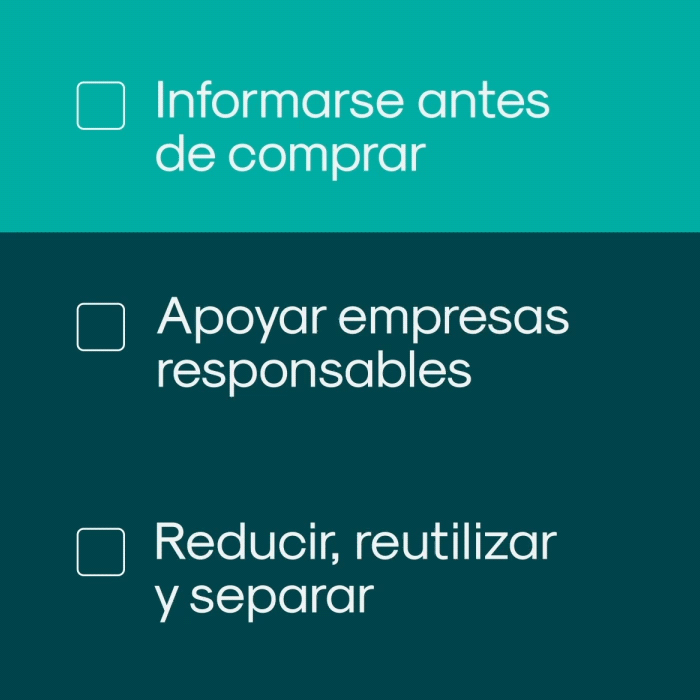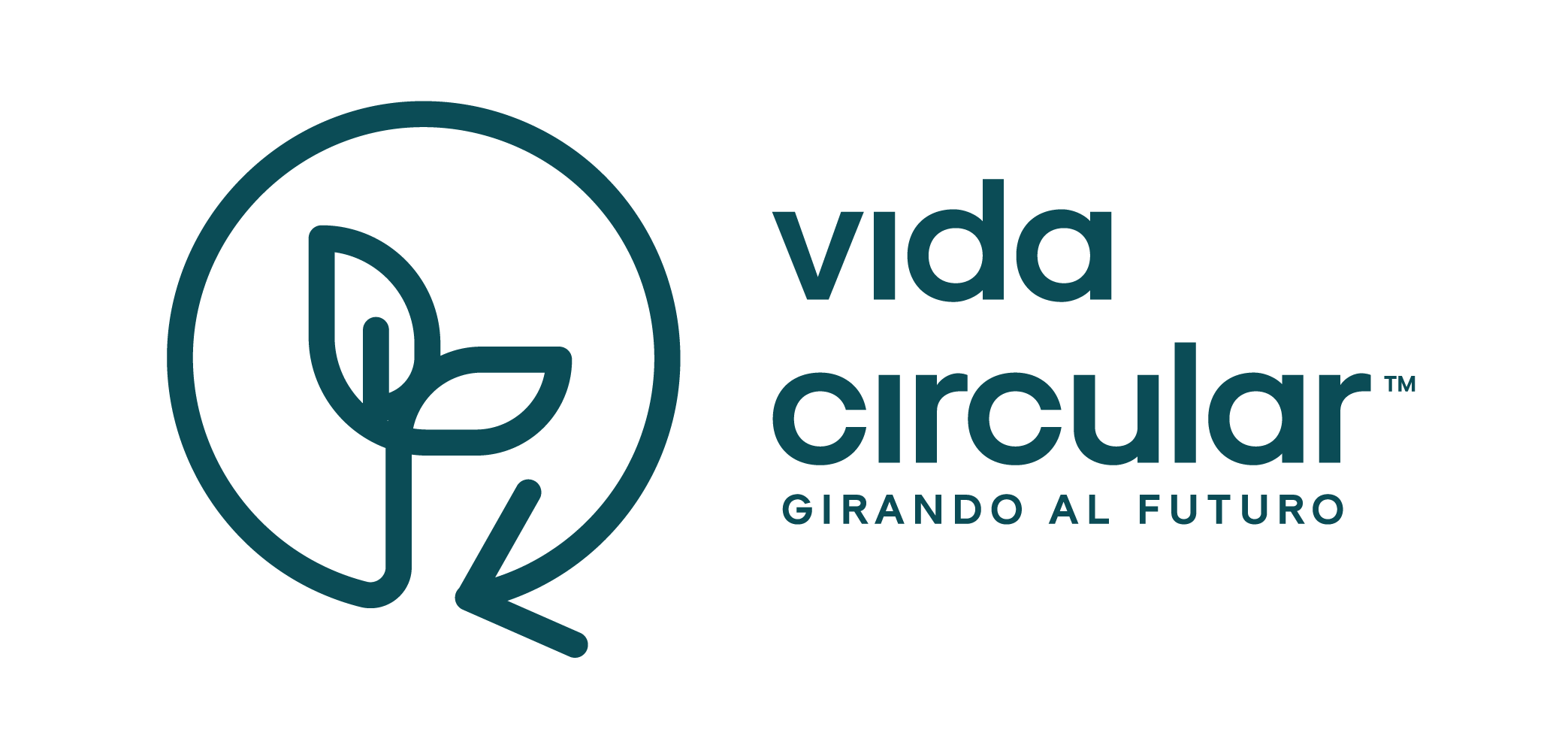
Sustainable consumption and its benefits for our planet
Sustainable consumption means using goods and services in a way that minimizes their negative impact on the environment and society, ensuring that resources remain available for future generations. It is not just about consuming less, but consuming smarter, prioritizing quality over quantity, ethics over convenience, and sustainability over short-term profit.
Today, we all hear about sustainable consumption, but do we really understand why it is so important? And how can we, with our daily decisions, help build a more sustainable future?
In this article, we're going to clear up those doubts, exploring in detail what sustainable consumption entails, why it is vital, and how we can start applying it in our daily lives. Join us in this conversation and discover how small changes in our habits can make a big difference in the world.

Key elements of sustainable consumption:
When we talk about sustainable consumption, we mean more than just buying less. It's about making conscious choices that really make a difference, not just for us, but for generations to come. Adopting a sustainable approach means thinking about how our daily actions affect the world around us and doing what we can to minimize that impact. That's why we share with you the key elements that will help you integrate sustainable consumption into your daily life, making it practical and effective.
- Waste reduction: An essential point of sustainable consumption is to reduce waste. This means opting for products that last longer, avoiding buying things with too much packaging, and, of course, recycling whenever possible. By being more careful about what we throw away, we help reduce the amount of waste that ends up in landfills and protect our ecosystems.
- Choosing responsible products: Another key aspect is to choose products that are manufactured ethically. This includes supporting companies that respect labor rights, offer fair wages, and strive to minimize their environmental impact. By preferring these products, we are not only buying something we need, but we are also supporting practices that make the world a more just and sustainable place.
- Efficient use of resources: Finally, sustainable consumption also means being aware of how resources are used in the production of the products we consume. Choosing products that make efficient use of water, energy, and materials not only helps conserve these resources, but also contributes to reducing our ecological footprint. Small changes, such as choosing appliances that consume less energy or being more careful with water use, can have a significant impact.

The consumer as the key to sustainable consumption
The consumer's role in the transition to a more sustainable future is critical. Every purchasing decision we make has the power to influence not only our lives, but the global marketplace and the direction of the economy. This power of choice, when exercised consciously and responsibly, can drive significant changes in the way businesses operate and how goods and services are produced and distributed.
Companies are, after all, responding to market demand. When consumers begin to demand more sustainable products, whether because they are made from recycled materials, are energy efficient or ethically sourced, companies are forced to adapt to remain competitive. This not only changes the range of products available, but can also inspire companies to innovate and look for greener and more responsible ways of operating. In many cases, consumer pressure has led large corporations to review their production practices, reduce their carbon emissions, eliminate the use of single-use plastics and adopt fair trade policies.
In addition, consumers have the ability to encourage transparency and accountability in companies. By choosing brands that are open about their production processes and that are committed to improving their social and environmental impacts, consumers can set a higher standard for the industry as a whole. This can include demanding clear labels that report on the origin of products, their environmental impact, and the labor conditions under which they were produced.
Consumer power is not limited to what we buy, but also extends to how we share information and promote change. With the rise of social media, consumers now have powerful platforms to share their experiences, recommend responsible products and call attention to unsustainable practices. This type of collective action can amplify the consumer voice, creating a movement towards more conscious and responsible consumption.
How can we make a difference?
- Be informed before you buy: Investigate the production practices of companies and opt for those that are aligned with sustainability values.
- Support responsible companies: Choose products from companies that demonstrate a genuine commitment to sustainability and social responsibility.
- Reduce, reuse and separate: Incorporate these principles into daily life to minimize environmental impact.

How can we apply sustainable consumption?
Applying sustainable consumption in daily life is not only possible, but necessary to reduce our ecological footprint and contribute to a fairer and more equitable world. Here are some practical examples that show how we can integrate sustainable consumption into different aspects of our lives.
- Opt for organic, local and seasonal products.
- Reduce meat consumption, especially red meat, which has a high carbon footprint.
- Avoid processed foods with ingredients of questionable origin or that require a large amount of resources to produce.
- Buy second-hand clothing or choose brands that prioritize sustainability.
- Avoid "fast fashion", which encourages excessive consumption and generates large amounts of waste.
- It supports designers and brands that use recycled materials or have an ethical and responsible approach to their production.
- Implement energy efficiency measures in the home, such as the use of LED light bulbs, energy-efficient appliances and the installation of solar panels.
- Turn off appliances when not in use and unplug chargers to avoid phantom power consumption.
- Consider using renewable energy sources if available in your area.
- Use water-saving devices, such as low-flow faucets and showerheads.
- Collects and reuses rainwater for plant irrigation and other non-potable uses.
- Be aware of water consumption in daily activities, such as washing dishes, clothes or the car.
- Prioritize the use of public transportation, bicycles or walking, instead of using the automobile.
- If a vehicle is necessary, consider an electric or hybrid vehicle.
- Participate in carpooling initiatives or share a vehicle with others to reduce the number of cars on the road.





